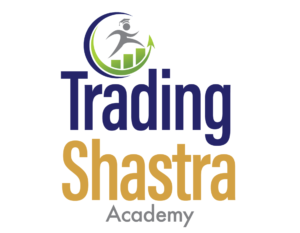- Sector -2, B Block Noida-201301
- info@tradingshastra.com

Risk Management in Trading: Why It’s Non-Negotiable
In trading, profits are optional but risk is permanent. Whether you’re trading options, futures, or equities, a single unhedged move can wipe out months of hard work. Most traders think they need a complex risk management course to get started—but the truth is, you don’t need another course. What you need is real-time guidance, proven strategies, and psychological training to handle market uncertainty.
That’s exactly what Trading Shastra Academy offers—live mentorship, custom-built risk tools, and proven techniques designed by experts with over 14 years of experience. We don’t just teach risk management—we help you master it while you trade.
Why Risk Management For Trading Matters
Market uncertainty—driven by global tensions, economic downturns, or political instability—can wipe out portfolios overnight. But for disciplined investors and traders, these periods also present a chance to fortify strategies, reduce exposure, and make smart plays.
Mastering risk management helps you:
Survive downturns and stay in the game
Make rational decisions under pressure
Protect capital while seeking growth

Mastering Risk Management in Stock Market Trading:
The #1 Habit of Successful Traders
1. Risk Management: The Backbone of Profitable Trading
Most traders focus on strategy, indicators, or signals—but forget the only thing that protects your capital: risk management. No matter how good your entry is, if your stop loss is undefined or your position size is oversized, you’re gambling, not trading. At Trading Shastra Academy, we believe trading without risk management is like driving a car with no brakes. That’s why every trade setup we teach is backed by clear risk protocols.
2. Why Most Retail Traders Fail Without Risk Rules
According to market data, over 85% of retail traders lose money, not because of bad strategies—but due to poor risk discipline. Emotional decisions, revenge trading, and lack of proper capital allocation destroy more portfolios than bad market calls. Risk management is not optional—it’s your survival kit. That’s why, instead of offering a one-size-fits-all course, Trading Shastra mentors you live, helping you apply risk concepts in real market conditions.
3. Risk Management is More Than Just Stop Losses
Many think risk management only means keeping a stop loss—but it’s much deeper. It involves understanding position sizing, correlation risks, volatility exposure, margin impact, and even mental discipline. Especially in options trading and leverage-based instruments, your capital must be protected before it is grown. At Trading Shastra Academy, we simplify these complex concepts into daily routines, live examples, and personalized strategies, so you’re never exposed blindly to the market.
Key Stock Market Strategies: Risk Management For Trading
1.Asset Allocation
Spread your investments across different asset classes like equities, bonds, commodities, and cash to reduce impact from one sector’s underperformance.
2.Position Sizing
Determine the appropriate capital per trade based on your total portfolio. For example, risk only 1–2% of your capital per trade.
3.Stop Loss and Trailing Stops
Set stop-loss orders to limit your downside.
Use trailing stops to protect profits as stock prices rise.
4.Diversification
Invest across sectors, industries, and geographies to minimize risk. A well-diversified portfolio absorbs shocks better.
5.Hedging with Derivatives
Use options and futures to hedge positions. For instance, a put option can protect a stock against downside.
6.Regular Portfolio Review
Markets change fast. Rebalancing your portfolio regularly keeps your strategy aligned with your risk appetite and market conditions.
Practical Tips from Trading Shastra
Avoid over-leveraging in a volatile market.
Stick to your risk-reward ratios—don’t chase profits blindly.
Use paper trading to test risk strategies before applying real capital.
Why Learn with Trading Shastra Academy

We teach real strategies, not just theory.
| Feature | Benefit |
|---|---|
| News-Based Trading Modules | Turn global headlines into trades |
| Risk Management Strategies | Limit losses during global shocks |
| Live Market Simulations | Trade real-time, not just on paper |
| Global Trade Impact Analysis | Learn how to interpret tariff news |
Contact Us:
Phone: +91 9717333285
Email: info@tradingshastra.com
Website: www.tradingshastra.com
FAQs
A: Diversify, hedge with options, and always use stop-loss orders.
A: At least quarterly, or when major market shifts occur.
A: Yes. Limiting losses ensures you're in the game longer to catch big wins.
A: Absolutely. It’s one of the core strategies we cover in depth.
Disclaimer: This article is for informational purposes only and does not constitute financial advice. Investors should conduct their own research or consult with a financial advisor before making investment decisions.
